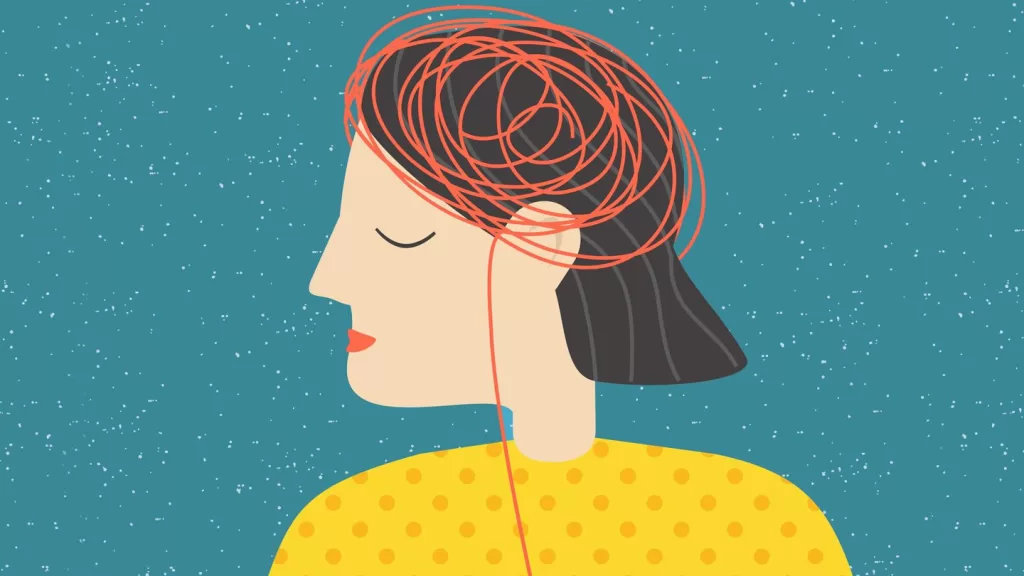Menopause is a natural biological process that is marked by the end of the menstrual period and a decline of reproductive hormones in a woman.
Stages of menopause.
- Perimenopause- it is marked by the decreased production of estrogen hormone. One may start to experience menopause symptoms and may start from 40 years.
- Menopause- one has had no menstrual period for 12 months and at this point the ovaries have stopped releasing the ovum.
- Postmenopause- no menstrual period for more than a year. Lever of estrogen is low hence the risk of health-related conditions is high.
Symptoms.
The following are symptoms one experiences in the perimenopause stage:
- Mood changes.
- Slowed metabolism and weight gain.
- Dry skin.
- Hair loss.
- Irregular periods.
- Vaginal dryness.
- Loss of breast fullness.
- Problem sleeping.
- Chills.
- Night sweats.
- Hot flash.
- Muscle and joint pains.
Causes of menopause.
- Declining of reproductive hormones naturally- estrogen and progesterone hormones are responsible for regulating the menstrual cycle.
- Oophorectomy- this is the surgical removal of the ovaries that causes immediate menopause.
- Ovarian insufficiency- leads to premature menopause.
- Chemotherapy and radiation therapy for women who had cancer cases.
Complication.
Examples of complications one may experience after menopause are:
- Weight gain its easy for one to add weight due to slow metabolism plus if one is less active in daily activities.
- Low sexual libido- moisture production in the vagina decreases due to vaginal dryness which may lead to discomfort during sexual intercourse. As a result, there is a reduced desire for sexual activity.
- Cardiovascular diseases increase especially if one does not eat healthily or exercise regularly so as to maintain a normal weight.
- Osteoporosis- the risk of one getting a fracture is high due to bones being weak and brittle.
- Urine incontinence due to the loss of elasticity of tissues of the vagina and the urethra one may have an involuntary loss of urine.
Diagnosis.
A blood test is done to check for the level of:
- Estrogen.
- Follicle-stimulating hormone.
- Thyroid-stimulating hormone.
In menopause, the level of these hormones decreases.

How to manage menopause.
- Vaginal estrogen administration is either in the form of a cream or a pill. It helps to relieve vaginal dryness when absorbed by the vaginal tissues.
- Hormone therapy – depending on one’s personal medical plus family history estrogen may be given in small doses and for a short period of time to reduce hot flashes. It’s not advisable to be done for a long period of time as it can cause: stroke, blood clots, or pulmonary embolism.
- Anti-depressants of low doses can be used for women who can’t take estrogen to manage hot flashes.
- Use of medication like vitamin D supplements to help strengthen one’s bones so as to prevent fractures.
- Eating a balanced diet where one can reduce caffeine consumption and eating spicy foods. This helps to reduce the severity of hot flashes. Food like vegetables, lentils, beans, and soybeans are considered healthy to eat.
- Joining support groups- as it creates outlets to express emotions one has.
- Regular doing of exercises like yoga helps to improve one’s mood and relaxation.
- Best Public High Schools in Kiambu County.
- Egerton university, fees, location, courses.
- What is the history of Kenyatta University?
- Public Universities in Kenya
- List of best private primary schools in Kirinyaga County.
- List of Best private secondary schools in Nairobi County.
- Kenya Institute of special education, courses.